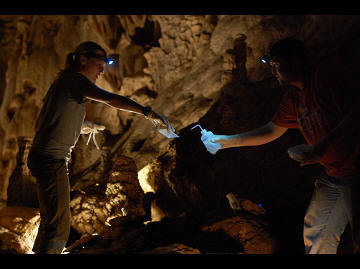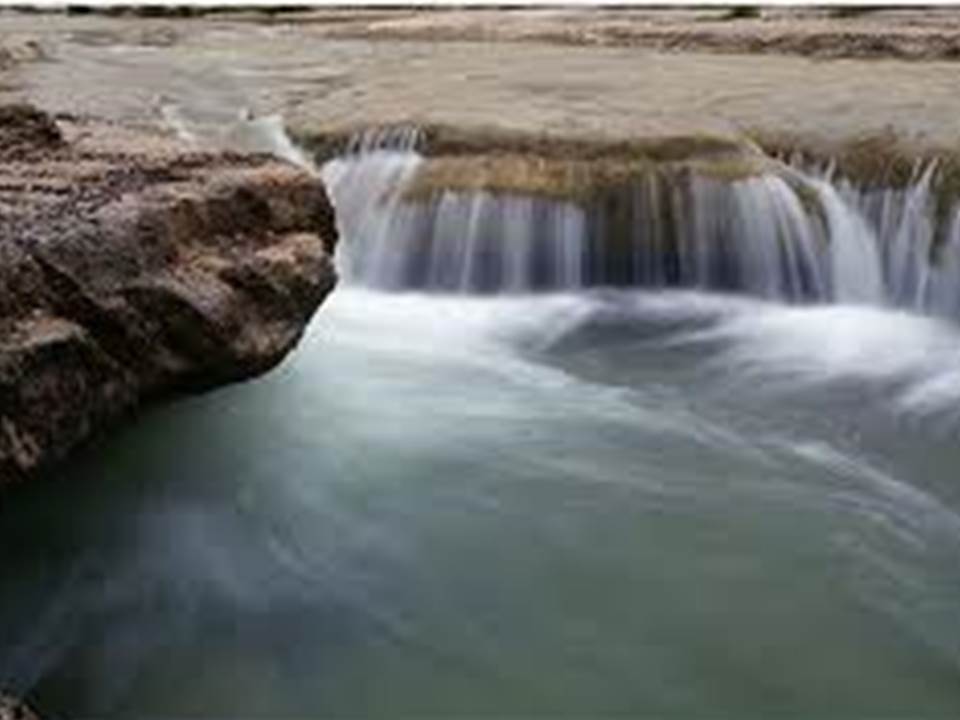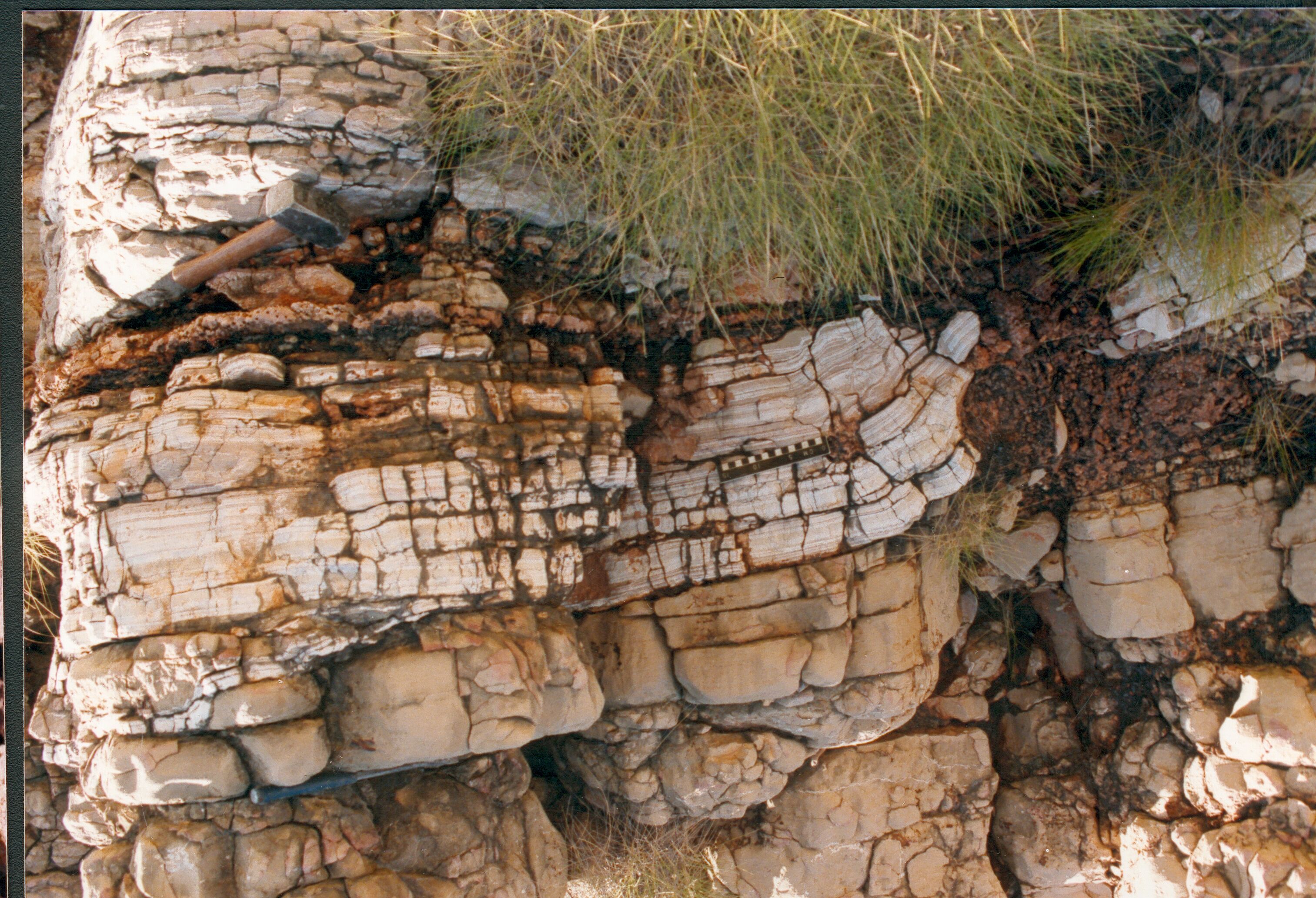
 |
|
| | UT Directory | UT Offices A-Z | Campus & Parking Maps | UT Site Map | Calendars | UT Direct | UTOPIA |
|
Jay L. Banner
Professor,
Department of Geological Sciences
Jackson
School of Geosciences
Director,
Environmental Science Institute
University of
Texas, Austin, TX 78712
Phone: 512-471-5016 (Fax 9425)
![]()
Research
Interests
I Group I
Projects
I Publications
I Research
Experiences for Undergraduates
I Related
programs
I The
Jackson School of Geosciences
Sedimentary
Rocks (GEO416M) I
Environmental Isotope Geochemistry
(GEO388H/376E)
I
Field
Methods (GEO660)
RESEARCH AND
TEACHING INTERESTS
Jay Banner's research and teaching interests center
on Earth surface processes, including climate and hydrologic processes, how they are
preserved in the geologic record, and how human activity affects the
sustainability of water resources. These subjects are explored using a
range of approaches that include field studies, petrography, isotope geochemistry, and
modeling. Examples of
research projects using these approaches are studies of cave
deposits (speleothems) as records of the links between climate change and hydrology, studies
of carbonate rocks as records of the chemistry of ancient oceans, and studies of modern
aquifers and watersheds in urbanizing environments. These projects
are detailed below.
RESEARCH
GROUP
Jay Banner's research group includes graduate students Corinne Wong, Jonathan
Snatic, Richard Casteel, Jeff Senison, Peter Carlson, and Rosemary Hatch; undergraduate students Nathan van Oort,
Barbara Wortham, Mark Moore, Emma Heitmann, and Paige Lambert; and Research Associate Eric James. Faculty
and research scientist collaborators at UT
include Jack Sharp, Nathan Miller, Staci Loewy, Alison Kolesar, Liang Yang, Charles Jackson, Bayani Cardenas, Jud Partin, Terry Quinn,
Fred Taylor, Christine Hawkes, and Dan Breecker.
Research collaborators at other institutions include Isabel Montanez (UC Davis),
John Mylroie (Miss. State), John Jenson (Univ. Guam), Larry Edwards (Univ. Minnesota),
Libby Stern (FBI), Kathleen Johnson (UC Irvine), John Valley (Univ. Wisconsin) and Malcolm Cleaveland (Univ. Arkansas).
RESEARCH
PROJECTS
Our group investigates three main research areas, described below.
 Paleoclimate
and Paleohydrology
Paleoclimate
and Paleohydrology
Speleothems are cave calcite deposits that are
geographically widespread and contain key information about past hydrologic,
geomorphic and climate conditions. Records of past
conditions are being reconstructed through studies of speleothems and tree rings in Texas,
and through studies of speleothems in the Western Pacific region,
the Bahamas, and Barbados. One emphasis of this research is
the rigorous assessment of ancient signals recorded by speleothems through
monitoring experiments in active caves. This research is supported by NSF and
the Water and Environmental Research Institute of the University of Guam.
 Hydrogeology
Hydrogeology
The processes of groundwater and surface
water evolution, flow paths, and impacts of urbanization are investigated using
stable and radiogenic isotopes and trace elements. This approach is applied to
the Edwards aquifer of Texas, the midcontinent USA, the Pleistocene aquifer of
Barbados, and central Texas watersheds. Temporal changes in these processes are
investigated through geochemical analysis of tree-rings and travertine growth
layers. This research is supported by NSF and the Guadalupe-Blanco River
Authority.
 Ancient ocean chemistry
Ancient ocean chemistry
Reconstructing the chemistry of ancient oceans using marine carbonate rocks is
applied to examining past changes in Earth surface processes and chemical
stratigraphic correlation. Essential to the successful analysis of such ancient
sedimentary sequences is establishing criteria for identifying least-altered
samples through petrographic, stratigraphic, and geochemical means. These
studies have been conducted in the Mississippian of the midcontinent, Cambrian
of the Great Basin, and Devonian of Western Australia, and have been supported
by NSF and ACS.
Publications on these projects can be found at http://www.geo.utexas.edu/faculty/banner/Publications/Pubs.htm, other educational materials on these projects can be found at www.esi.utexas.edu/caves.
Isotope Clean Lab Mass spectrometers Lab Manager: Dr. Staci Loewy
RELATED RESEARCH PROGRAMS in the Department of Geological Sciences at UT Austin:
Isotope Geochemistry Program
Hydrogeology Program
Sedimentary Geology Program
11/25/13